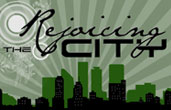Max Anderson and the “MBA Oath”: Bringing Integrity to Business Management
August 09, 2012 By Kelly Givens and Amy L. Sherman
By Kelly Givens and Amy L. Sherman
All too often the evening news spotlights someone found guilty of some kind of unethical business practice. Remember MF Global’s former CEO Jon Corzine testifying before Congress that he simply “doesn’t know” what happened to the estimated $1.2 billion dollars of customer funds that went missing? Given stories like these, it’s not that surprising that public opinion polls often give business leaders low marks for trustworthiness.
But plenty of business people are not motivated by greed. Indeed, as Harvard University professor Michael Porter has been arguing, a growing number of companies are seeking to upend the old mindset that “what’s good for business is good for society” with a new paradigm of shared value: what’s good for society is good for business. (Click here for a great video interview with Porter.)
More than 150,000 students will earn their MBAs this year. How many will pursue the high road? One who has chosen that path led an important effort while still in school to encourage his peers towards integrity. Max Anderson, a 2009 Harvard MBA grad, is co-founder of the MBA Oath. Anderson says that he and his classmates were well aware of the “low opinion many people have of MBA’s, especially in the wake of the financial crisis. We don’t want to be known as the least respected profession in America… We want to be known as professionals, who look after the best interests of their clients, customers, employees, and shareholders.” 1
That commitment birthed the MBA Oath.
The Oath is a pledge to “create value responsibly and ethically,” and touches on everything from refraining from corruption, unfair competition and business practices, as well as vowing to work with a higher professional standard. The idea for this Hippocratic-type oath for business professionals started formulating a few days before Anderson’s graduation from the MBA program. Talking with his future wife, Anderson recalls mentioning how great it would be if he and his classmates would make a commitment to “behave with the biggest integrity” in their work. Although twice as many students graduate with MBA degrees as compared with law and medical degrees, “the MBA does not make you a professional like these other degrees do,” Anderson wrote in a blog post at the Harvard Business Review. “What if it did?”
The idea stuck with him, and together with 30 other students, Anderson began to work on the content of the MBA Oath. By June of 2009, more than 200 students in business schools around the world had signed. Today, over 300 institutions have already adapted the oath as part of their graduation policy.
Anderson’s commitment to ethical business management started after he arrived at Princeton, when one of his first undergraduate classes–Leadership and Corporate Accountability– helped him tie his budding Christian faith and vocational interests together. “It opened my mind to the idea that my faith was not just about my own soul and me going to heaven, but [my faith] could dramatically influence the way I approach issues of inequality, and of crime, and issues in the public sphere,” Anderson explained during an interview with Princeton’s Faith and Work Initiative. “[The class] made me start thinking… how would my faith affect me if I was in business, if I was doing any number of the things I thought I might do?” 2
By the time Anderson was preparing to graduate from Harvard Business School, America had entered the financial crisis from which we’re still reeling. He had hoped that out of 900 graduates, 100 would sign the newly created MBA Oath. He was surprised by the results—ultimately two-thirds of his graduating class signed on.
Through his commitment to ethical business management, Anderson is working to advance economic flourishing for the common good. He serves as an example to us of what it looks like to truly “bloom where you’re planted,” using his business gifts and talents to impact the business community towards a higher standard of work.
Read more about the MBA Oath here.
____________________________________________
1 Anderson, Max. “Why We Created the MBA Oath,” Harvard Business Review, June 8. 2009. Accessed Dec. 13, 2011.
2 “A Protestant Perspective on Ethics in the Executive Suite,” Princeton University Faith and Work Initiative, Mar. 31, 2011. <http://www.princeton.edu/faithandwork/media/ethics-in-the-executive-suite/max-anderson/>.





